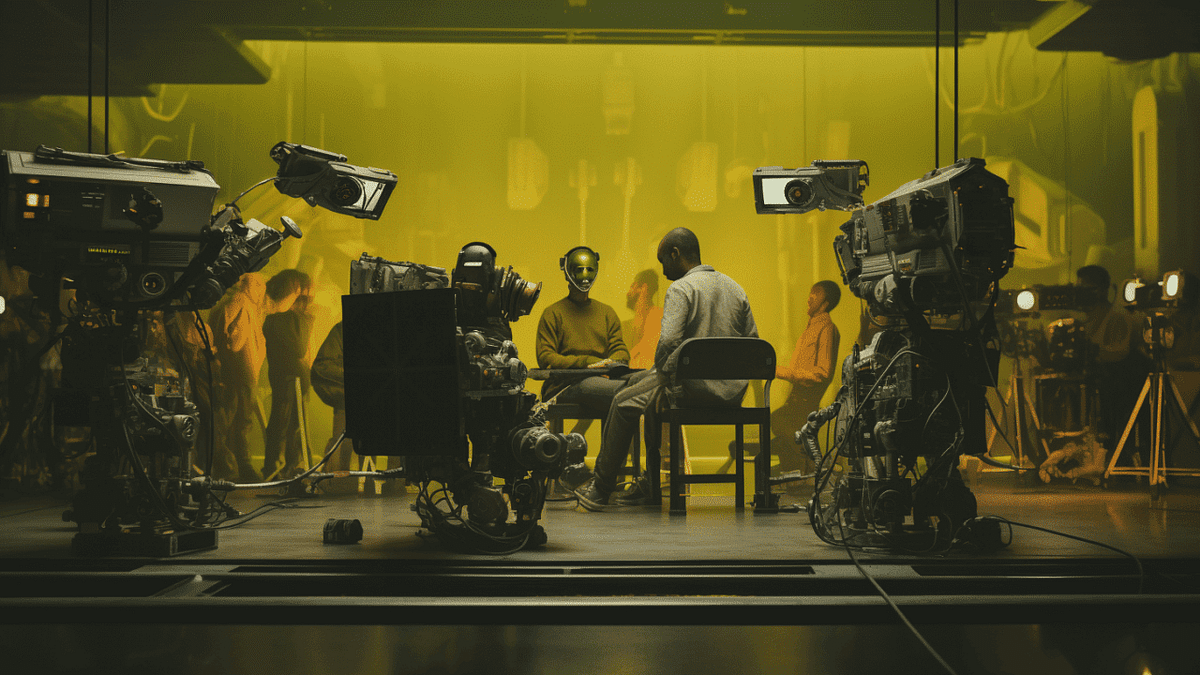In an age where artificial intelligence is reshaping industries—from healthcare to creative arts—theater is experiencing its own AI revolution. AI-generated short plays are emerging as a fascinating trend, captivating playwrights, directors, and audiences alike. These bite-sized performances, often crafted in minutes by algorithms, blend human creativity with machine efficiency, offering fresh narratives and experimental storytelling.
But why are these AI scripts gaining traction? And what does this mean for the future of theater? Let’s explore the rise of AI-generated short plays and their impact on the performing arts.
1. What Are AI-Generated Short Plays?
AI-generated plays are scripts created using large language models (LLMs) like ChatGPT, Claude, or specialized theater AI tools. These programs analyze vast databases of existing plays, learning structure, dialogue, and dramatic techniques to produce original works. The results range from absurdist comedy sketches to poetic monologues, often with surprising depth.
Key Features:
✔ Quick Production – A 10-minute play can be drafted in seconds.
✔ Experimental Styles – AI isn’t bound by traditional norms, leading to unconventional formats.
✔ Collaborative Potential – Writers use AI as a brainstorming tool, refining its output.
2. Why Are They Becoming Popular?
A. Accessibility for Aspiring Playwrights
Not everyone has the time or training to write a play from scratch. AI lowers the barrier to entry by:
- Generating instant dialogue and plot ideas.
- Helping writers overcome “blank page” syndrome.
- Offering multiple variations of a scene for inspiration.
B. A Tool for Theater Education
Drama schools and workshops are using AI scripts to:
- Teach students about structure and character development.
- Provide material for acting exercises and improv prompts.
- Spark discussions on human vs. machine creativity.
C. Experimental & Fringe Theater
Avant-garde performers love AI plays for their unpredictable, surreal narratives. Festivals like Edinburgh Fringe and Off-Off-Broadway have featured AI-written works, often with live human edits.
D. Cost-Effective Content for Small Troupes
Community theaters and indie groups use AI to:
- Quickly generate rehearsal scripts.
- Adapt stories into localized versions.
- Produce micro-plays for social media.
3. Notable Examples & Success Stories
- “AI, Myself & I” – A comedy about a robot writing a play, ironically co-written by ChatGPT.
- “The Machine’s Monologue” – A haunting solo performance generated by an AI trained on Beckett and Pinter.
- Twitter Play Fest – An online festival where users submit AI-generated 280-character “nano-plays.”
4. The Controversy: Can AI Replace Human Playwrights?
While AI scripts are gaining fans, debates rage over their artistic value:
Pros:
- Democratizes playwriting – More people can experiment with theater.
- Sparks creativity – Writers use AI as a jumping-off point.
- Pushes boundaries – Unusual narratives challenge traditional theater.
Cons:
- Lacks emotional depth – AI can mimic but not truly feel human experiences.
- Risk of homogenization – Over-reliance may lead to formulaic stories.
- Copyright questions – Who owns an AI-generated script?
Most artists agree: AI is a collaborator, not a replacement.
5. How to Create Your Own AI Short Play
Step 1: Choose Your AI Tool
- ChatGPT/Claude – Great for general playwriting.
- Dramatron – A specialized AI for theater scripts.
- Infinite Prompt – Generates absurdist, experimental pieces.
Step 2: Feed It a Creative Prompt
Example:
*”Write a 5-minute play about two astronauts arguing over who forgot the coffee on Mars, in the style of David Mamet.”*
Step 3: Edit & Humanize
- Adjust dialogue for natural flow.
- Add subtext and emotional beats.
- Trim unnecessary exposition.
Step 4: Stage It!
- Perform at local open mics.
- Film as a short digital play.
- Submit to AI theater festivals.
6. The Future of AI in Theater
As technology evolves, expect:
- AI-human co-written Broadway plays.
- Interactive theater where audiences vote on AI-generated plot twists.
- Personalized plays tailored to a viewer’s preferences.
Final Thought: A New Creative Partner
AI-generated short plays aren’t about replacing artists—they’re about expanding possibilities. Whether used as a writing aid, educational tool, or avant-garde experiment, AI is carving out a unique space in theater.
Refer to these sources for related topics:
https://xamshebeauty.com/
https://journalistenews.com/
https://remood.org/
https://lawandtechnology.net/
https://geohealthwestafrica.org/
https://jhomefashion.com/
https://supernorth.co.uk/
https://ournewstw.com/
https://averyhealthcare.org/
https://betonmoney.com/
https://lainhomecareservice.com/
https://meregrand.org/
https://thegreenhousecc.org/
https://treatmentdiariesblog.com/
https://releaseswebershandwick.com/
https://nickernewsblog.com/
https://releasesinpress.com/
https://mountainhometreeservice.com/
https://empeusacbd.com/
https://marijuanaonlineshopsupply.com/
https://homedocsmedical.com/
https://statianews.com/
https://medicalmarijuanacontrolact.org/
https://cbdhempoilqueen.com/
https://oblive.co.uk/
https://artwalknews.com/
https://holradio.net/
https://newst20.com/
https://homesinmia.com/
https://ncruralhealth.org/

